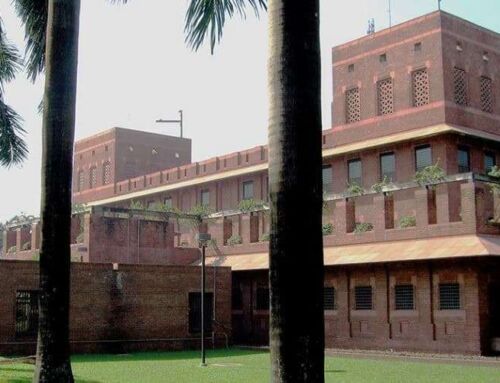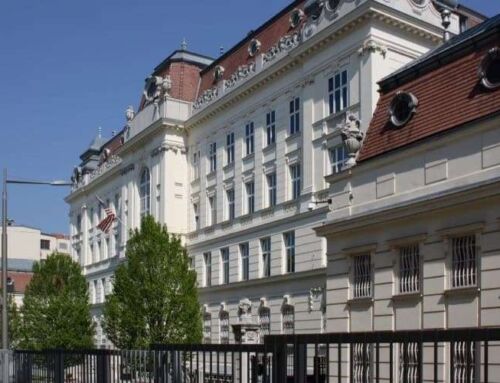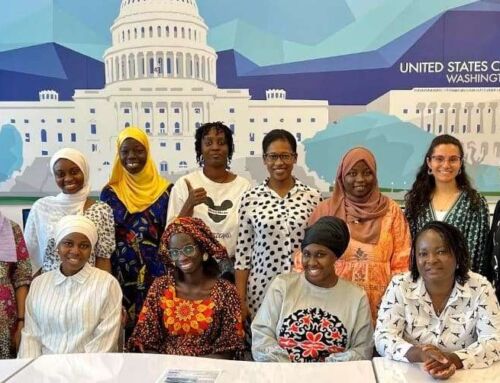Freddy Mendez joined the Foreign Service in 2003 as an Information Management Specialist (IMS) and is currently the strategy branch chief for the U.S. Department of State’s mobile and remote access division in the Information Resource Management (IRM) bureau. The IMS role has evolved into the Diplomatic Technology Officer (DTO) role. In this interview, Freddy talks about what it’s like working in the Foreign Service and gives advice to students applying for the Foreign Affairs Information Technology Fellowship program. You can also see this interview on video here and on YouTube.
How many places have you lived around the world as an IT professional in the Foreign Service?
Since joining I’ve served in six countries. My first assignment was in La Paz, Bolivia, and that was quite special. My parents are from Bolivia, so they just retired from the States and went back to Bolivia. My second tour was a directed assignment to Helsinki, Finland. Two countries that couldn’t be more different in culture, language, typography and climate, and I spent two years there as well. After Finland. I spent two years in Nicaragua. From Nicaragua, I moved to Geneva, Switzerland, for three years to work at the U.S. mission to the United Nations. As a graduate of international studies, I was excited to live around so many international organizations. And, of course, the skiing was pretty amazing. I actually learned how to ski and fell in love with it there. Then from there, I spent three years in Sydney, Australia, and then Bratislava Slovakia. So all six amazing countries and fantastic experiences. I wish I could have stayed longer in all of those posts.
Do you get a choice of posts where you’d be assigned?
Your first two assignments are directed, though your preferences and interests are considered. After the directed assignments, there is a bidding process in which you would submit a “bid list” of your ranked selection of posts. Developing and maintaining a bid list requires attention to the Department’s bidding rules and procedures. When you join, a career development officer will assist with questions about bidding strategies, career development goals, and constructing a valid bid list. I’m currently in Washington, D.C., but we’re planning on going back overseas next year, so the bidding for us starts now for the year ahead of us.
What is the typical workday of a Foreign Service Diplomatic Technology Officer (DTO), formerly IMS?
The typical day of a DTO really varies. It could depend on the size of the mission and where you are within your career. The Information Program Center, or IPC, handles all the classified systems, and the Information System Center, the ISC, which handles the unclassified. The IPC is administered by American personnel only. The ISC, the unclassified, is typically managed by the locally engaged staff. When most DTO’s start their career, they usually start in the IPC, working on the classified systems, as well as radio and telephone administration, and the diplomatic pouch. When I started in La Paz, Bolivia, I started by working slowly in the IPC. In Helsinki, I worked in both sections. And then in Nicaragua and Geneva, I was also in charge of the unclassified section and reported to the IMO. Then at the U.S. Consulate in Sydney, I was in charge of the IPC. In Bratislava, I was the IMO. So it’s a loaded question.
Have you seen this IT role change over the years?
The role has changed quite a bit since I was in Bolivia. A lot of the core of what we do supporting the communication systems is still there. But there’s now more of a need for the consultants – folks that can understand and can come into the mission and understand the business needs of our users, our customers – the political, the consular, the economic, the management and public diplomacy officers.
What is your most memorable experience in the Foreign Service?
So I would say one of my most memorable experiences was in 2014 when I was working at the U.S. Consulate in Sydney Australia. That’s where two hostages were held during a 17-hour siege by a lone wolf gunman in a Sydney cafe just a couple blocks from the consulate where we were at. At the time when we heard the news, we were all on the 56th floor of this commercially leased office building. And we didn’t know if the gunman was inside the building, if there was a bomb, if there were more people involved, so we all had to act really quickly and get ourselves organized. And since there was little information, the whole building decided to evacuate. This included the consular officers in our section.
My role was to ensure that, first, my staff was accounted for. Then I had to ensure that folks had the communication equipment, the radios, the computers, the links open so that we can contact Washington and be able to communicate with the operation center. We had to move to an alternate command center and maintain that direct communication with Washington. I never expected this to happen in Sydney, of all places. But it really hit home the importance of the reliance our diplomatic colleagues have on the communications and equipment that we support.
You’ve worked in IT in the private sector before joining the State Department. Can you compare working in the Foreign Service with working in the private sector as an I.T. specialist?
For starters, I don’t know a lot of private sector I.T. specialist jobs that give you the opportunity to travel around the world to live in so many different countries, experience amazing cultures, and have the benefit of working with some of the best locally engaged staff around the world. I’d say the biggest similarity is that as an i.t specialist in either the private or public sector, the better you’re able to understand and anticipate the needs of your end-users or customers, the more successful you’ll be. And it’s really not all about the technology. It’s more about providing the technology for the customers.
What can FAIT Fellows expect in their summer internships?
I’ve had the pleasure of working with two FAIT Fellows in the last two years. The first one who arrived pre-COVID was able to get involved and see both parts of our division – the strategy branch and the operations branch. This FAIT Fellow helped us review a lot of the end-user documentation, she attended high-level meetings with senior leadership, and she got involved and invited to multiple vendor events in the DC area. The second FAIT Fellow I worked with had to telework because of COVID. She helped with some pretty cool stuff. We had just gotten these Microsoft Hololenses and were starting to test the functionality to introduce them into the enterprise. So I shipped one of the devices to her and had her do some testing and documentation for us, which I think she really enjoyed doing.
Do you have any advice for students who are applying for the FAIT Fellowship?
My advice for students applying for the FAIT fellowship is to read. The first book I would highly recommend a book is The Phoenix Project. It’s a really good book that talks about I.T. and DevOps and really helping your business. It applies to both private and public sector types of I.T. jobs. The second book I would recommend is America’s Other Army. It’s about the U.S. Foreign Service and 21st-century diplomacy. Again, this is all around that notion of really trying to understand who your customer is – the diplomat. If you’re able to do that when you apply and when you continue your career in the Foreign Service, I think it’ll be a successful one.






